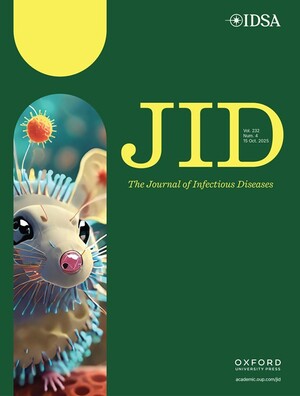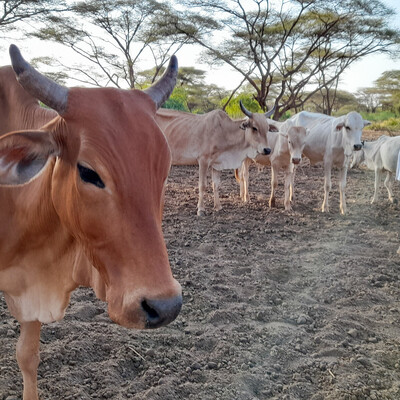
Refining the Rift Valley fever (RVF) decision support tool: A collaborative step towards proactive response in East Africa
On 4 September 2024, ILRI hosted a collaborative workshop in Naivasha, Kenya to refine the Rift Valley fever (RVF) decision support tool, an innovative platform designed to aid in the prevention and control of RVF epizootics in the greater Horn of Africa. By using a risk-based approach, this web-based tool helps decision-makers make evidence-based decisions to prevent and control RVF outbreaks. By analyzing climate data, disease modeling, and other information on how the disease spreads, the tool helps identify high-risk conditions for RVF –especially when rainfall and humidity increase mosquito populations that spread the disease.
Primary objectives:
- Designing a context specific innovation package: The days deliberations aimed to develop an innovation package for the RVF decision support tool to facilitate its scaling. The goal was to tailor the tool to specific contexts within the region by leveraging the expert knowledge of participants.
- Innovation packaging and scaling readiness assessment: Participants engaged in preparing the innovation packaging and scaling readiness assessment form. This process involved specifying the geographic scope, goals and intended users or beneficiaries of the tool. It also included assessing the demand for scaling the innovation and identifying experts key for the innovation packaging and scaling readiness exercise.
Participants collaborated in interactive group session where they highlighted challenges in using the tool. These included its complexity, limited awareness among potential users, and its inaccessibility without internet connectivity. The participants also worked on strategies to overcome these challenges such as coming up with simplifying the tool’s interface, training and awareness programs, and exploring offline functionalities to make it more accessible in remote areas.
Stakeholder group discussion session of the RVF decision support tool (photo credit: ILRI/Geoffrey Njenga)
Key recommendations:
To mark the close of the workshop, Bernard Bett, senior scientist at ILRI’s Health program, highlighted key recommendations resulting from the workshop:
- Risk mapping enhancement: There is a need to integrate data on how many people have been exposed to the infection with clinical records to create detailed risk maps. This integration will enable targeted surveillance and control efforts, as seroprevalence data alone may not accurately define risk levels.
- Policy engagement and communication: Developing concise abstracts and policy briefs is essential to assist policymakers in translating research findings into actionable strategies. Effective communication will facilitate informed decision-making and resource allocation.
- Enhance sensitivity of the tool: The developer needs to incorporate short-term climatic predictions and other important climatic variables in the RVF decision support tool to increase the sensitivity of the tool as RVF outbreaks are often triggered by climate factors like rainfall, which boost mosquito populations that spread the virus.
- Social ecological factors: Incorporation of social ecological factors such as land use/cover, topography, vectors abundances and distribution, and herd immunity is critical
- Realtime diagnostic data availability: Promote real-time clinical/point of care diagnosis that can be captured by mobile phone data and transmitted.
- User awareness and training: Implement targeted training and awareness programs to boost user familiarity and confidence with the RVF decision support tool. This includes building capacity across government departments, field officers, and local communities to promote effective use and adoption.
The day featured interactive sessions for stakeholders to explore how to best integrate the tool into existing workflows. Discussions also underscored the importance of customized decision support systems that fit Kenya’s unique zoonotic disease landscape.
Moving forward, the project team will incorporate feedback to ensure the RVF decision support tool aligns seamlessly with on-the-ground needs and supports informed and rapid responses to RVF outbreaks.
Participants included representatives of the Ministry of Health, Ministry of Ministry of Agriculture and Livestock Development, Kenya, Isiolo County, Kenya Medical Research Institute, Washington State University, Kenya Wildlife Service, Wildlife Research and Training Institute, University of Nairobi, Los Alamos National Laboratory, World Organization for Animal Health (WOAH), Defence Threat Reduction Agency, Food and Agriculture Organization (FAO), Ministry of Environment, Climate Change and Forestry, Kenya Agriculture and Livestock Research Organization.
This work is funded by United States Agency for International Development (USAID) Bureau for Humanitarian Assistance (BHA). The views expressed in this publication do not necessarily reflect the views of the United States Agency for International Development or the United States Government.
You may also like
Related Publications

Rift Valley fever virus remains infectious in milk stored in a wide range of temperatures
- Dawes, B.E.
- De La Mota-Peynado, A.
- Rezende, I.M.
- Buyukcangaz, E.K.
- Harvey, A.M.
- Gerken, Keli N.
- Winter, C.A.
- Bayrau, B.
- Mitzel, D.N.
- Waggoner, J.J.
- Pinsky, B.A.
- Wilson, W.C.
- LaBeaud, A.D.

Rift Valley fever epidemiology: shifting the paradigm and rethinking research priorities
- Rostal, M.K.
- Thompson, P.N.
- Anyamba, A.
- Bett, Bernard K.
- Cêtre-Sossah, C.
- Chevalier, V.
- Guarido, M.
- Karesh, W.B.
- Kemp, A.
- LaBeaud, A.D.
- Lubisi, A.
- Matthews, L.
- Msimang, V.
- Njenga, M.K.
- Ross, N.
- Tumusiime, D.
- Wilson, W.C.
- Weyer, J.
- Paweska, J.T.
- Swanepoel, R.

Machine learning approach to predicting Rift Valley fever disease outbreaks in Kenya
- Mulwa, D.
- Kazuzuru, B.
- Misinzo, G.
- Bett, Bernard K.

Spatial and temporal analysis of Rift Valley fever outbreaks in livestock in Uganda: a retrospective study from 2013 to 2022
- Arinaitwe, E.
- Atuhaire, D.K.
- Hasahya, Emmanuel
- Nakanjako, G.K.
- Mwebe, R.
- Nizeyimana, G.
- Afayoa, M.
- Mwiine, F.N.
- Erume, J.














